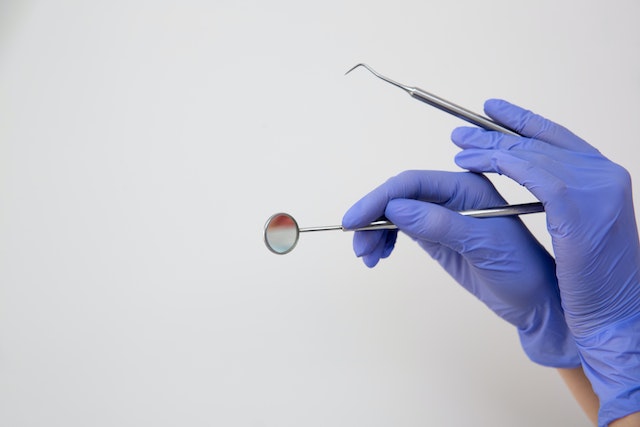Single tooth implant is a popular dental procedure that replaces a missing tooth with an artificial one. If you’re considering one, you’ll want to know right away what the single tooth implant cost without insurance is. The implant is surgically placed in the jawbone and acts as a replacement for the root of the missing tooth. The cost of a single tooth implant without insurance can vary depending on several factors.
The cost of a single tooth implant without insurance can range from $1,000 to $4,000 or more. This cost includes the implant, abutment, and crown. However, additional costs may be incurred for procedures such as bone grafting or sinus lift. Factors that can influence the cost of single tooth implant include the location of the dental office, the experience of the dentist, and the type of implant used.
Key Takeaways
- Single tooth implant is a dental procedure that replaces a missing tooth with an artificial one.
- The single tooth implant cost without insurance can range from $1,000 to $4,000 or more depending on several factors.
- Factors that can influence the cost of single tooth implant include the location of the dental office, the experience of the dentist, and the type of implant used.
Understanding Single Tooth Implant
A single tooth implant is a dental procedure that involves replacing a missing tooth with an implant that is surgically placed in the jawbone. This implant serves as an artificial root for the replacement tooth, which is attached to it. The implant is typically made of titanium, which is biocompatible and can fuse with the jawbone over time.
The cost of a single tooth implant without insurance can vary depending on several factors, including the location of the dental office, the experience of the dentist, and the type of implant used. On average, the cost can range from $3,000 to $6,000.
It is important to note that the cost of a single tooth implant may seem high, but it is a long-term investment in one’s oral health. Unlike other tooth replacement options, such as dentures or bridges, implants are designed to last a lifetime with proper care.
Before undergoing a single tooth implant, patients should consult with their dentist to determine if they are a good candidate for the procedure. This may involve a thorough dental exam, including X-rays and other diagnostic tests.
Overall, a single tooth implant can be a highly effective and long-lasting solution for those who have lost a tooth. With proper care and maintenance, patients can enjoy a healthy, functional smile for years to come.
The Procedure of Single Tooth Implant
The procedure of single tooth implant involves several steps that are performed by a skilled surgeon. The process typically begins with a thorough examination of the patient’s mouth, including x-rays and a CT scan, to determine the best course of action.
If the tooth is still present, a tooth extraction may be necessary before the implant procedure can begin. This may be a simple extraction or a surgical extraction, depending on the condition of the tooth and surrounding tissue.
Once the tooth has been extracted, the surgeon will prepare the site for the implant. This involves drilling a small hole into the jawbone and placing the implant post. The post is typically made of titanium and serves as the foundation for the new tooth.
After the post has been placed, the patient will need to wait several weeks for the implant to fuse with the jawbone in a process called osseointegration. During this time, the patient may be given a temporary crown to wear.
Once the implant has fully fused with the jawbone, the surgeon will attach an abutment to the post. This is a small connector piece that will hold the crown in place.
Finally, the crown is attached to the abutment, completing the single tooth implant procedure. The crown is custom-made to match the patient’s natural teeth in size, shape, and color, ensuring a natural-looking and functional replacement tooth.
Throughout the procedure, the patient will be given local anesthesia to numb the area and ensure a comfortable experience. The single tooth implant cost without insurance can vary depending on the surgeon, location, and other factors, but it typically ranges from $3,000 to $5,000.
Material Used in Single Tooth Implant
When it comes to single tooth implant, the material used plays a crucial role in determining the overall cost of the procedure. The most commonly used materials in single tooth implant are titanium, zirconia, porcelain crown, ceramic, and dental crown.
Titanium is the most popular material used in single tooth implant due to its strength, durability, and biocompatibility. It has been used in dental implants for over 40 years and has a high success rate. Titanium implants are also lightweight and easy to work with.
Zirconia is a newer material that is gaining popularity in single tooth implant. It is a type of ceramic that is known for its strength and durability. Zirconia implants are also biocompatible and can blend in well with natural teeth.
Porcelain crown is a popular material used in the crown portion of the implant. It is known for its natural look and ability to match the color of surrounding teeth. Porcelain crown is also durable and long-lasting.
Ceramic is another material used in the crown portion of the implant. It is known for its natural look and ability to match the color of surrounding teeth. Ceramic is also durable and long-lasting.
Dental crown is the outermost portion of the implant that is visible. It is usually made of porcelain or ceramic and is designed to match the color and shape of surrounding teeth. Dental crown is also durable and long-lasting.
Overall, the material used in single tooth implant depends on various factors such as the patient’s preference, budget, and the dentist’s recommendation. It is important to choose a material that is biocompatible, durable, and has a natural look.
Cost of Single Tooth Implant Without Insurance
Getting a single tooth implant can be an expensive procedure, especially if you don’t have dental insurance. The cost of a single tooth implant without insurance can vary depending on several factors such as the location, the dentist’s experience, and the materials used.
On average, the cost of a single tooth implant without insurance ranges from $3,000 to $5,000. However, the cost can go up to $10,000 or more depending on the complexity of the procedure and the type of implant used.
It is important to note that the cost of a single tooth implant without insurance may not include additional costs such as the initial consultation, X-rays, and other diagnostic tests. These costs can add up and increase the overall cost of the procedure.
Additionally, some dental practices may offer financing options or payment plans to help patients cover the cost of a single tooth implant without insurance. It is important to ask about these options and carefully review the terms and conditions before making a decision.
If you have a dental insurance plan, it is important to check if the procedure is covered and what the deductible and co-payments are. Some insurance plans may cover a portion of the cost of the procedure, but it is important to review the coverage carefully to understand what is and isn’t covered.
Overall, the cost of a single tooth implant without insurance can be expensive, but it is important to consider the long-term benefits and improved quality of life that a dental implant can provide.
Factors Influencing the Cost
The single tooth implant cost without insurance can vary depending on several factors. Here are some of the main factors that can influence the cost:
Type of Implant
There are different types of implants available, and the cost can vary depending on the type. For example, a traditional implant with a titanium post and porcelain crown may cost more than a mini implant with a smaller post and crown. The type of implant used will depend on the patient’s needs and the dentist’s recommendation.
Location
The cost of dental procedures can vary depending on the location. Dental services in urban areas may cost more than in rural areas. In addition, the cost can vary depending on the country where the procedure is done. For example, dental services in the United States may cost more than in other countries.
Dentist’s Experience
The experience of the dentist can also influence the cost of a single tooth implant. Dentists with more experience may charge more for their services. However, experienced dentists may also be able to provide better results and reduce the risk of complications.
Additional Procedures
Additional procedures may be required before or after the implant procedure, which can increase the cost. For example, bone grafting may be necessary if the patient does not have enough bone to support the implant. This can add to the overall cost of the procedure. Another option may be to look into veneers. Click here to learn more about the cost of veneers.
Insurance Coverage
The cost of a single tooth implant can be significantly reduced if the patient has dental insurance that covers the procedure. However, not all insurance plans cover dental implants, and some may only cover a portion of the cost. Patients should check with their insurance provider to determine their coverage.
Dental Savings Plans
Dental savings plans may also help reduce the cost of a single tooth implant. These plans offer discounts on dental procedures at participating dentists. Patients can purchase a plan and use it to save money on the cost of the implant.
Flexible Spending Accounts and Health Savings Accounts
Flexible spending accounts (FSAs) and health savings accounts (HSAs) can also be used to pay for dental procedures, including implants. These accounts allow patients to set aside pre-tax dollars to pay for medical expenses. Patients should check with their employer or account provider to determine if dental implants are eligible expenses.
In summary, the cost of a single tooth implant without insurance can vary depending on several factors, including the type of implant, location, dentist’s experience, additional procedures, insurance coverage, and available savings plans and accounts. Patients should consult with their dentist and insurance provider to determine the best options for their needs and budget.
Alternatives to Single Tooth Implant
While single tooth implant is a popular and effective solution for missing teeth, it may not be the best option for everyone. Some patients may have concerns about the cost of the procedure, especially if they do not have insurance coverage. Fortunately, there are several alternatives to single tooth implant that can be considered.
Dental Bridge
A dental bridge is a common alternative to single tooth implant. It involves placing a prosthetic tooth between two existing teeth, which are prepared by removing some of the enamel to make room for the bridge. The prosthetic tooth is then attached to the adjacent teeth with dental cement, creating a permanent and stable restoration.
A dental bridge is typically less expensive than a single tooth implant, although the exact cost may vary depending on the number of teeth being replaced and the materials used. However, it is important to note that a dental bridge may not be as durable as an implant, and may require replacement after several years.
Dentures
Dentures are another alternative to single tooth implant, and are typically used when several teeth are missing. Partial dentures can be used to replace one or more missing teeth, while full dentures are used when all teeth are missing.
Dentures can be made from a variety of materials, including acrylic, porcelain, and composite resin. They are typically less expensive than implants, but may be less comfortable and less stable. Additionally, dentures may require frequent adjustments and replacements over time.
Implant-Supported Dentures
Implant-supported dentures are similar to traditional dentures, but are supported by dental implants rather than the gums. This can provide greater stability and comfort, and can also reduce the risk of bone loss in the jaw.
Implant-supported dentures are typically more expensive than traditional dentures, but may be more cost-effective in the long run due to their durability and longevity.
All-on-4
All-on-4 is a specialized type of implant-supported denture that can replace an entire arch of teeth with just four dental implants. This can provide a more affordable and efficient solution for patients who require full arch restoration.
While All-on-4 may be more expensive than traditional dentures, it can provide significant benefits in terms of comfort, stability, and long-term durability.
Root Canals
In some cases, a root canal may be a viable alternative to single tooth implant. A root canal involves removing the infected or damaged pulp from a tooth, and then filling the space with a dental filling or crown.
While a root canal may be less expensive than an implant, it may not be as effective for restoring the function and appearance of the tooth. Additionally, a root canal may require additional treatment or restoration in the future.
Overall, there are several alternatives to single tooth implant that can be considered depending on the patient’s needs and preferences. It is important to consult with a qualified dental professional to determine the best option for each individual case.
Additional Procedures and Their Costs
In addition to the single tooth implant cost without insurance, there may be additional procedures required to ensure the success of the implant. These procedures can significantly increase the total cost of the implant.
One common additional procedure is a bone graft. A bone graft may be necessary if there is not enough bone present in the jaw to support the implant. The cost of a bone graft can range from $200 to $3,000 per site, depending on the extent of the graft required.
Another procedure that may be necessary is a sinus lift. A sinus lift is required when there is not enough bone in the upper jaw to support the implant. The cost of a sinus lift can range from $1,500 to $5,000 per site.
Tooth extractions may also be necessary before the implant can be placed. The cost of a tooth extraction can range from $75 to $650 per tooth, depending on the complexity of the extraction.
Other dental procedures such as root canals or periodontal treatments may also be required before the implant can be placed. The cost of these procedures can vary widely depending on the extent of the treatment required.
It is important to note that the cost of additional procedures can vary widely depending on the location of the dental practice and the experience of the dentist. Patients should always discuss the potential need for additional procedures with their dentist and obtain a detailed cost estimate before proceeding with treatment.
Pros and Cons of Single Tooth Implant
Single tooth implant is a popular dental procedure that involves replacing a missing tooth with an artificial tooth root and crown. While this procedure can offer many benefits, there are also some potential downsides to consider. Here are some pros and cons of single tooth implant:
Pros
- Improved Functionality: Single tooth implants can restore the functionality of your teeth, allowing you to bite, chew, and speak normally.
- Aesthetically Pleasing: Implants are designed to match the appearance of your natural teeth, so they can provide a more aesthetically pleasing result than other tooth replacement options.
- Long-Lasting: With proper care, single tooth implants can last for many years, even decades.
- Preserves Bone: Implants can help preserve the bone in your jaw by providing stimulation that prevents bone loss.
- No Need for Adjacent Teeth Alteration: Unlike dental bridges, implants do not require the alteration of adjacent teeth, which can help preserve the structure of your natural teeth.
Cons
- Cost: Single tooth implants can be expensive, especially if you do not have dental insurance coverage.
- Time-Consuming: The process of getting a single tooth implant can take several months, as it involves multiple stages of treatment.
- Surgery Risks: As with any surgery, there are risks associated with getting a single tooth implant, such as infection, bleeding, and nerve damage.
- Not Suitable for Everyone: Some people may not be good candidates for single tooth implants due to factors such as poor oral health, bone loss, or medical conditions that affect healing.
Overall, single tooth implant can be a great option for many people who are missing a tooth. However, it is important to carefully consider the pros and cons before making a decision, and to discuss your options with a qualified dental professional.
Payment and Financing Options
Single tooth implant cost without insurance can be expensive, but there are payment and financing options available to make it more affordable. Here are some options to consider:
Payment Plans
Many dental offices offer payment plans that allow patients to spread out the cost of their treatment over several months. These plans may require a down payment and charge interest, but they can be a good option for those who need to pay for their implant over time.
Financing Options
Financing options, such as personal loans or credit cards, can also be used to pay for a single tooth implant without insurance. Patients should research their options carefully and choose a reputable lender with favorable terms.
Dental Payment Plans
Some dental offices offer their own payment plans, which may be interest-free or have lower interest rates than other financing options. Patients should ask their dentist about these plans and compare them to other options.
Overall, patients should consider their budget and financial situation when choosing a payment or financing option for a single tooth implant. It’s important to choose an option that is affordable and manageable, without taking on too much debt or interest.
Maintaining Oral Health After Implant
After getting a single tooth implant, it is important to maintain good oral health to ensure the longevity of the implant and surrounding teeth. Proper oral hygiene is crucial to prevent gum disease, which can lead to implant failure. The American Academy of Periodontology recommends the following steps to maintain good oral health:
- Brush twice a day with a soft-bristled toothbrush and fluoride toothpaste. Brushing removes plaque, a sticky film of bacteria that can cause gum disease and tooth decay.
- Floss daily to remove plaque and food particles from between teeth. Flossing helps to prevent gum disease and tooth decay.
- Use an antimicrobial mouthwash to reduce the amount of bacteria in the mouth. Mouthwash can also freshen breath and help prevent cavities.
- Visit the dentist regularly for a dental exam and professional cleaning. A dental exam can detect early signs of gum disease and other dental problems. A professional cleaning removes plaque and tartar that cannot be removed by brushing and flossing alone.
It is also important to pay attention to the health of the gums and natural teeth surrounding the implant. Gum disease can cause the gums to recede, exposing the implant and leading to implant failure. It can also cause the natural teeth to become loose and eventually fall out. A misaligned bite can also put extra stress on the implant and surrounding teeth, leading to implant failure.
In summary, maintaining good oral health is essential for the success of a single tooth implant. Regular brushing, flossing, and dental visits can help prevent gum disease and other dental problems. Paying attention to the health of the gums and natural teeth surrounding the implant is also important to ensure the longevity of the implant.
Recovery and Post-Procedure Care
After getting a single tooth implant, the patient will need to take care of the implant site to ensure proper healing and prevent infection. The recovery time for a single tooth implant can vary depending on the patient’s overall health, the location of the implant, and the complexity of the procedure.
The first few days after the procedure, the patient may experience some discomfort, swelling, and bruising around the implant site. The dentist may prescribe pain medication to help manage any pain or discomfort.
To reduce swelling and promote healing, the patient should apply an ice pack to the affected area for 20 minutes at a time, several times a day. It is also important to avoid smoking and drinking alcohol as these can delay the healing process.
The patient should also follow a soft food diet for the first few days after the procedure. This can include foods such as soup, yogurt, and mashed potatoes. The patient should avoid hard, crunchy, or sticky foods that could damage the implant site.
In addition to these measures, the patient should also maintain good oral hygiene by brushing and flossing regularly. The dentist may also recommend using a special mouthwash to help keep the implant site clean.
Overall, with proper care and attention, the patient can expect a successful recovery from a single tooth implant procedure.
Choosing the Right Dentist for Implant
When considering a single tooth implant, it is important to choose the right dentist to perform the procedure. There are several options available, including general dentists, prosthodontists, dental schools, and the Dental Lifeline Network.
General dentists are trained to perform a variety of dental procedures, including implants. However, it is important to ensure that the dentist has experience and training specifically in implant placement. Patients may want to ask their dentist how many implants they have placed and what their success rate is.
Prosthodontists are dental specialists who focus on restoring and replacing teeth. They have additional training in implant placement and can provide more complex restorations, such as implant-supported bridges or dentures. Patients who require more extensive treatment may want to consider seeing a prosthodontist.
Dental schools may offer implant placement at a lower cost, as the procedures are often performed by dental students under the supervision of experienced faculty members. However, patients should be aware that the procedures may take longer than in a private practice setting.
The Dental Lifeline Network is a non-profit organization that provides free dental care to people with disabilities, the elderly, and those with low incomes. They may be able to provide implant placement at a reduced cost or for free, depending on the patient’s eligibility.
Ultimately, the most important factor in choosing a dentist for implant placement is their experience and training in the procedure. Patients should feel comfortable asking their dentist about their qualifications and experience before proceeding with treatment.
Conclusion
In conclusion, the cost of a single tooth implant without insurance can vary widely depending on several factors. The type of implant, the location of the dental practice, and the experience of the dentist can all affect the cost.
On average, a single tooth implant can cost anywhere from $1,500 to $6,000 without insurance. This cost includes the implant itself, the abutment, and the crown. However, additional costs may be incurred for any necessary preparatory procedures such as bone grafting or extractions.
While the cost may seem high, it is important to consider the long-term benefits of a single tooth implant. Implants are a durable and long-lasting solution for missing teeth that can improve overall oral health and restore confidence in one’s smile.
Patients should always consult with their dentist to determine the best treatment plan for their individual needs and budget. Many dental practices offer financing options to help make the cost of a single tooth implant more manageable.
Overall, a single tooth implant without insurance can be a significant investment, but it is a worthwhile one for those seeking a permanent solution for a missing tooth.
Frequently Asked Questions
What factors affect the cost of a single tooth implant?
The cost of a single tooth implant can vary depending on several factors, such as the location of the dental practice, the experience of the dentist, the type of implant used, and the need for additional procedures such as bone grafting or sinus lifts. Additionally, the cost may also include the cost of the abutment and crown that will be attached to the implant.
Can I find affordable options for single tooth implants?
While the cost of a single tooth implant can be expensive, there are options available to make it more affordable. Some dental practices offer payment plans or financing options to help patients spread out the cost over time. Additionally, some dental schools offer discounted rates for dental procedures, including single tooth implants.
Is it possible to get financial assistance for single tooth implants?
Some organizations and programs offer financial assistance for dental procedures, including single tooth implants. These may include non-profit organizations, dental charities, and government programs such as Medicaid or Medicare. It’s important to research and inquire about these options to see if you qualify for financial assistance.
What is the average cost of a single tooth implant without insurance?
The average cost of a single tooth implant without insurance can range from $3,000 to $5,000 or more. However, the cost may vary depending on the factors mentioned above.
Are there any risks or complications associated with single tooth implants?
As with any dental procedure, there are risks and potential complications associated with single tooth implants. These may include infection, nerve damage, implant failure, and damage to surrounding teeth or structures. However, these risks can be minimized by choosing an experienced and qualified dentist and following proper aftercare instructions.
How long does the process of getting a single tooth implant take?
The process of getting a single tooth implant typically takes several months and involves multiple appointments. This includes the initial consultation, implant placement surgery, healing and osseointegration (the process of the implant fusing with the jawbone), and the attachment of the abutment and crown. The exact timeline may vary depending on the individual case and any additional procedures that may be required.





